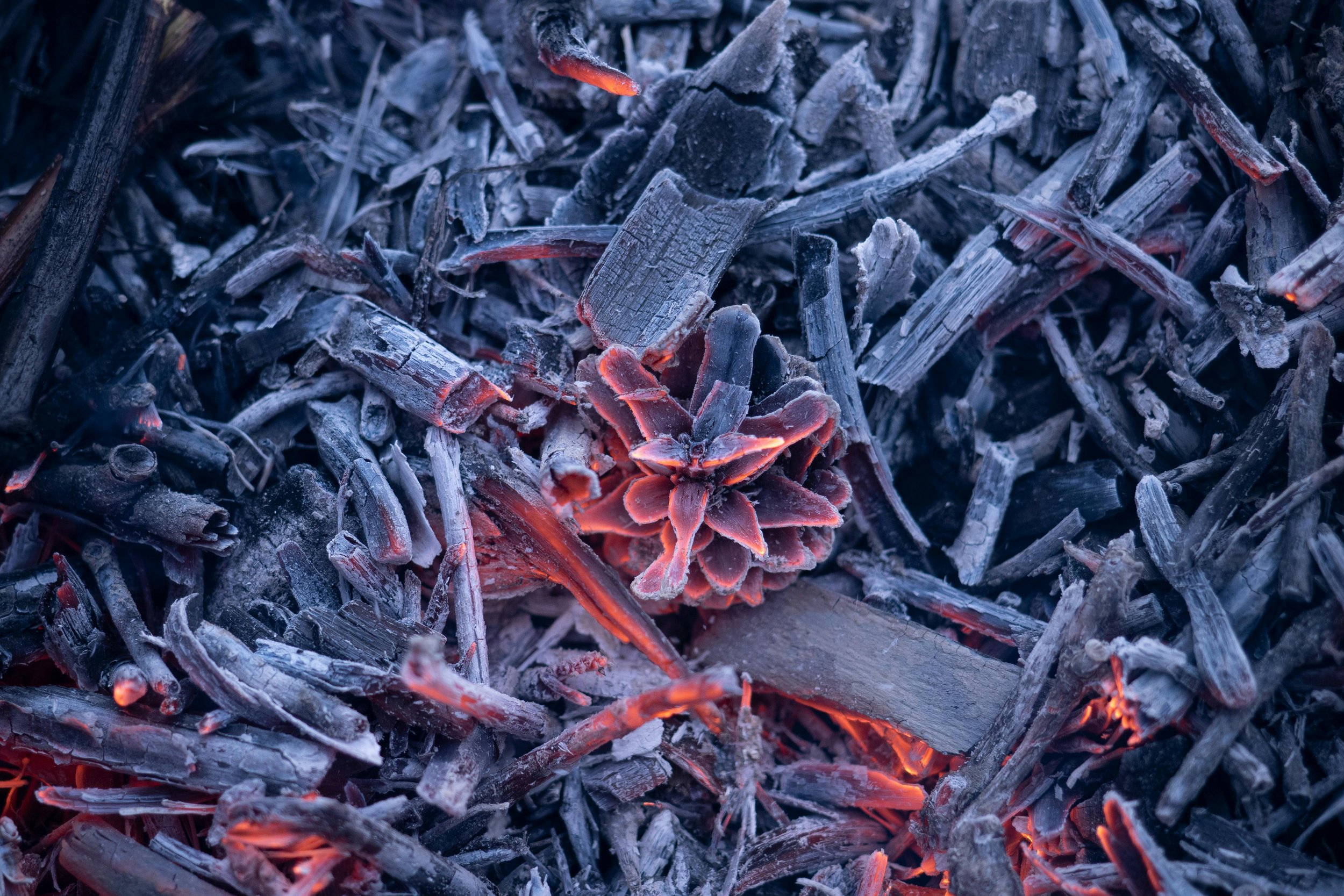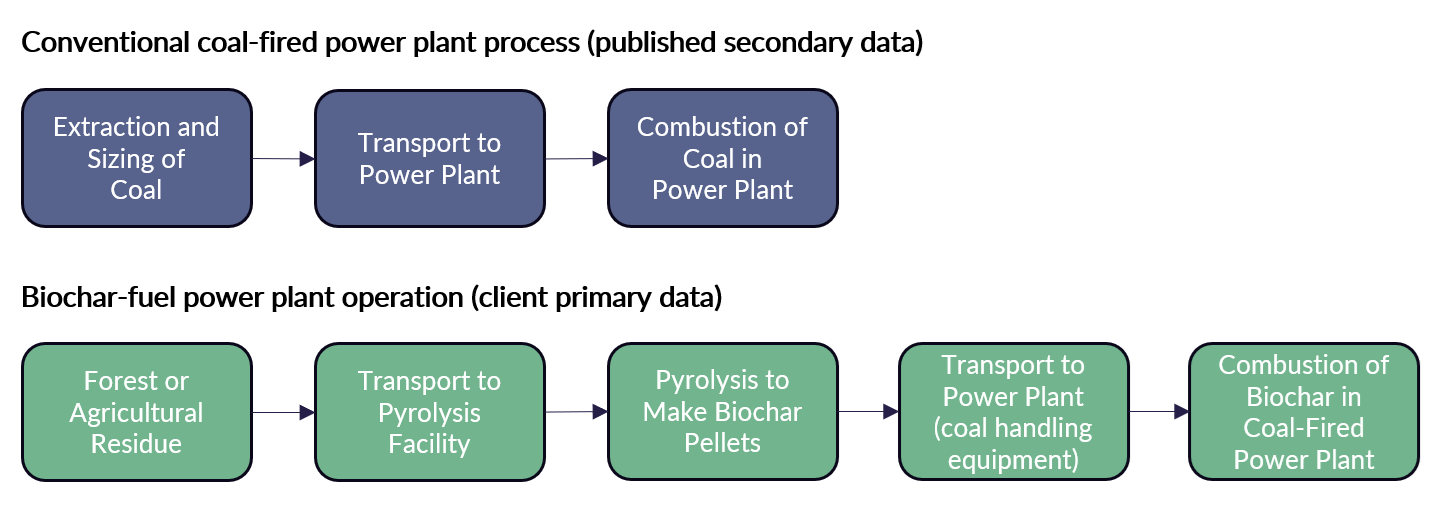CASE STUDY
Biochar Carbon Accounting
Our client sought a fast-turn, independent estimate of the carbon impacts of a planned biochar plant in California that would convert agricultural and forest waste into fuel for Asian power plants. The proposed facility would address the need to make productive use of agricultural and forest tree waste material, and simultaneously back out coal from use by power plants.
The Client’s Challenge
The client faced the challenge of rigorously comparing the biochar fuel pathway to coal, accounting for complex variables such as supply chain emissions, pyrolysis operations, and biogenic carbon treatment—while validating the operator’s internal analysis and excluding avoided emissions from open residue burning.
OUR SOLUTION
To address the client’s need, an independent carbon impact analysis was conducted by comparing secondary data from coal-fired power generation with primary data from the proposed biochar system, including feedstock collection, pyrolysis operations, and biochar properties.
The modeling demonstrated a favorable emissions profile for the alternative fuel, even without accounting for avoided open burning of residues, and confirmed that the climate benefit hinges on the exclusion of biogenic emissions.
Our results validated the pyrolysis operator’s internal estimates, providing a credible, third-party assessment to support project development.
STUDY SCOPE
WHAT WE LEARNED
When using biochar for fuel (under the prescribed conditions of this study), the carbon climate benefit hinges on the exclusion of biogenic emissions.
OUR IMPACT
Our findings independently corroborated the pyrolysis operator’s estimates, offering a reliable third-party evaluation to strengthen the project's credibility and support its advancement.



